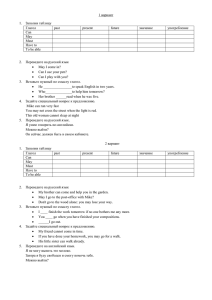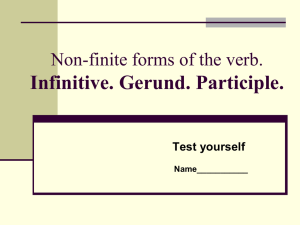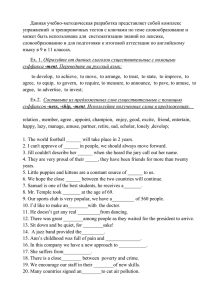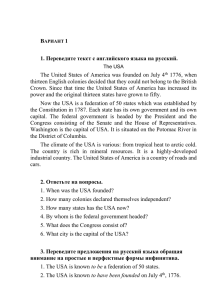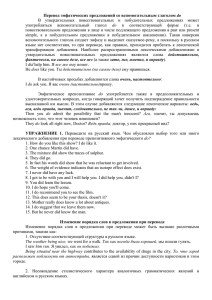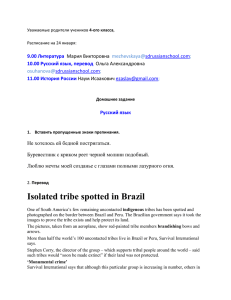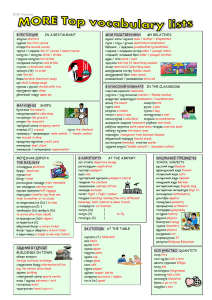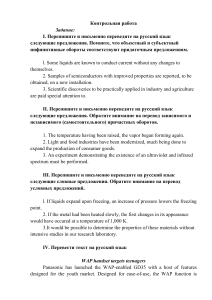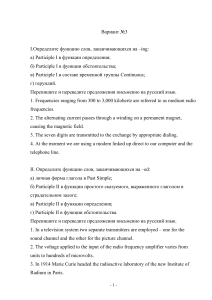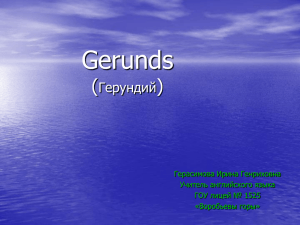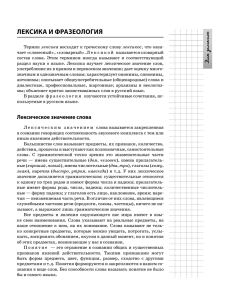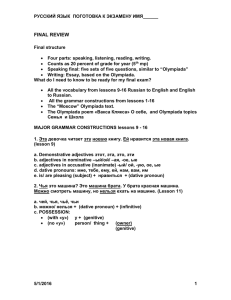“Who Is a Successful Person?” Выполнила: Хамзина О. А. учитель
реклама
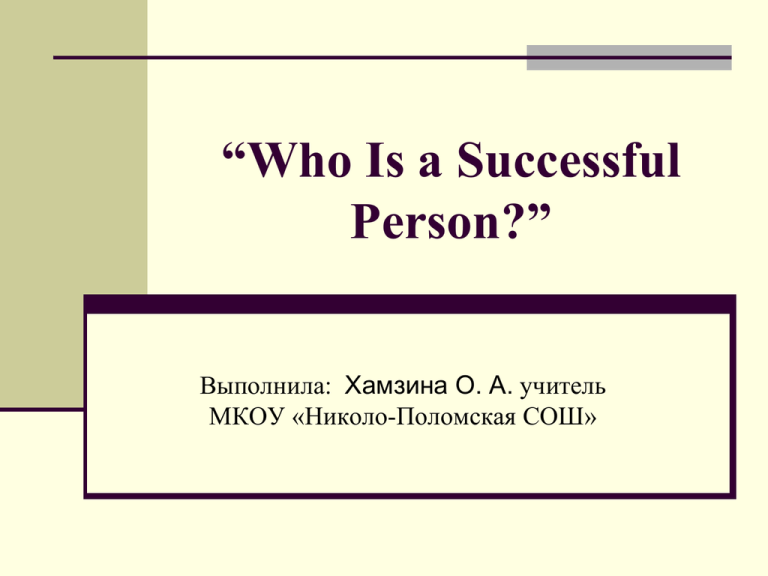
“Who Is a Successful Person?” Выполнила: Хамзина О. А. учитель МКОУ «Николо-Поломская СОШ» Who Is a Successful Person? Reading Rules LETTER READING RULE EXAMPLE Yy 1.[ai] в открытом типе слога. 2.[i] в конце слова. ay / ey [ei] Try fly Only happy Obey stay ee [i:] Three ea [i:] Reading ie [i:] Believ are т.н 4-й тип слога (ar+гласная) Parents ere / eir чтение по 4-му типу слога Where their Translate the sentences from English into Russian. It was his own idea to live separately from his family. He has become the owner of a company. He speaks English and German with equal easily. Three times three is equal to nine. The Constitution states that all people have equal rights. They are equal partners. He is not equal to do the task. He has no equal. What is he/she famous for? Complex Object. The teacher wants Pete to answer the question. The teacher wants you to answer question. Как переводится на русский язык «Complex Object»? Complex Object переводится на русский язык как «сложное дополнение» или «объектный падеж с инфинитивом». Complex Object. Из чего состоит сложное дополнение(Complex Object)? СУЩ. В ИМ.П. Complex Object=------------------ + (to) Infinitive МЕСТОИМ-Е В ОБЪЕКТ.П. Сложное дополнение (Complex Object) состоит из существительного в им.п. или из местоимения в объектном падеже за которым следует инфинитив. Complex Object. Как переводится на русский язык предложение содержащее Complex Object? На русский язык обороты Complex Object переводятся придаточными изъяснительными предложениями, которые вводятся союзами что, чтобы. После глаголов see, hear, watch при переводе употребляется союз как. Местоимение в объектном падеже переводится на русский язык местоимением в именительном падеже. Complex Object Лицо Именительный падеж Объектный падеж Единственное число 1 2 3 I You He She It Me – меня, мне You – тебя, тебе Him – его, ему Her – ее, ей It – его/ее, ему/ей Множественное число 1 2 3 We You They Us – нас, нам You – вас, вам Them – их, им Complex Object употребляется: После глаголов: To want – I want you to learn English. To expect – I expect her to come on time. Would like – He would like us to read this book. После глаголов восприятия: to hear, to see, to watch, to feel, to make(заставлять), to let(позволять), инфинитив употребляется без частицы to. Complex Object Translate into Russian. Find Complex Object. 1) We expect this book to be printed in May. 2) She didn’t let him walk a dog. 3) Mike doesn’t want Helen to explain anything. 4) We didn’t expect them to have sold the house. 5) I watched him ride a bike yesterday. 6) Did you hear her play the guitar? 7) Finally she made us tell the truth. 8) I’d like this letter to be delivered on Monday. 9) I heard the baby cry in the bedroom. 10) Where do you expect them to live? Complex Object Open the brackets using Complex Object. Translate into Russian. 1) 2) 3) 4) 5) 6) 7) I want (he)…to be my friend. They would like (we)…to learn English. We expect (they)…to arrive at 6 p.m. She doesn’t want (her daughter)…to live in France. I would like (you)…to offer them our help. She heard (he)…open the door. Tom expect (I)…to write letters every week. The lesson is over. Thank you for the lesson. Good bye.
